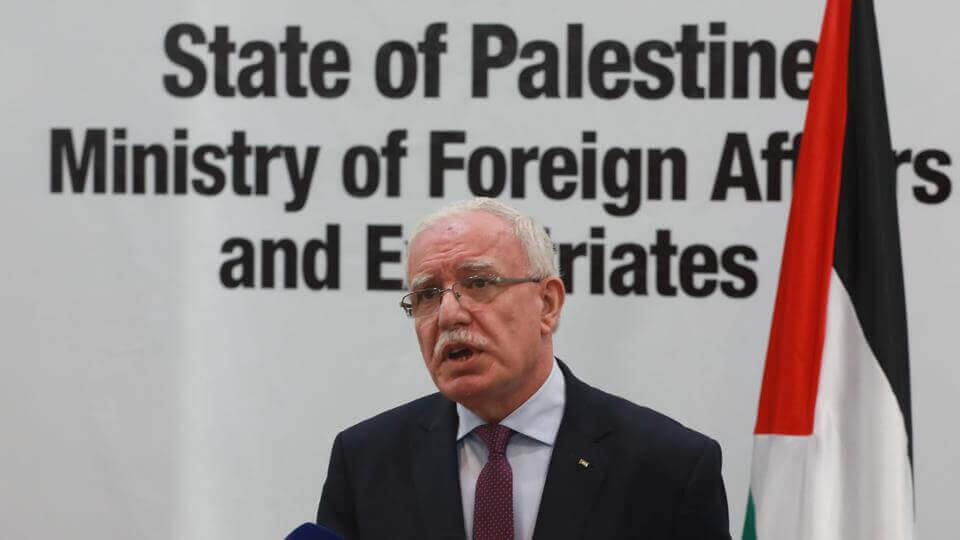On Tuesday, Palestinian Foreign Minister Riyad al-Maliki announced that his government would be quitting its rotating chairmanship role at the Arab League in protest against the bloc’s inability to condemn the United Arab Emirates (UAE) and Bahrain for normalizing ties with Israel. “Palestine has decided to concede its right to chair the League’s council at its current session. There is no honour in seeing Arabs rush towards normalization during its presidency,” Maliki said.
On 15 September, Bahrain and the UAE signed deals brokered by the United States in Washington to formalize their diplomatic recognition of Israel. The Palestinians viewed this move as a major blow and a betrayal to their efforts at achieving independent statehood, which included diplomatic pressure from regional Muslim allies on Israel to end its occupation.
Earlier this month, the League dropped a draft resolution championed by Palestine that condemned the controversial diplomatic agreements between the Gulf countries and Israel. According to sources, while Arab countries had agreed to emphasize a commitment to a two-state solution to the Palestinian issue as per the land-for-peace principle and the 2002 Arab Peace Initiative in its final resolution, they refused to include a clear condemnation of the deal between the UAE and Israel.
As a result, Maliki announced that Ramallah no longer wanted the position of temporarily chairing the 22-member regional association, which was to continue for another six months until March. Maliki said that the Secretary-General of the Arab League, Ahmed Aboul Gheit, was informed of the Palestinian Authority (PA)’s decision. Quoting the letter that he sent to Gheit, Maliki said that Abu Dhabi’s deal with Tel Aviv had “created a deep crisis in the Arab League,” which was emulated in “a similar collapse by the Kingdom of Bahrain.” He further added that the Palestinian state refuses to be associated with a presidency that has supported a regression in principles and values, which was made “evident” in the League’s last council meeting.
Previously, the PA had threatened to leave the body following the rejection of the resolution. In fact, President Mahmoud Abbass ordered a review of Palestine’s membership to the organization. However, senior diplomat Saeb Erekat said that Palestine could not completely withdraw from the League, with Maliki backing his stance, stating that they did not want to create a vacuum in the body or create “different scenarios which we do not need right now in this stage.”
However, the PA continues to maintain its support of the so-called “Arab consensus”, which has long held that Arab states would only normalize their ties with Israel if the latter meets demands to withdraw from occupied territories, agree to the creation of a Palestinian state that recognizes east Jerusalem as its capital, and also find a just solution for the resettlement of millions of Palestinian refugees.
Angered by Arab-Israel Deals, Palestine Quits Arab League Chair Role
The bloc had rejected a Palestinian resolution to condemn the Abraham Accord.
September 23, 2020

Palestinian Foreign Minister Riyad Al-Maliki addressing a press conference in Ramallah on 22 September. SOURCE: ISSAM RIMAWI/ANADOLU AGENCY
